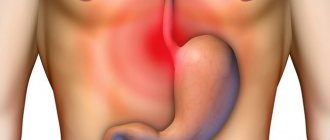Intestinal colic in children in the first months of life is a fairly common occurrence. It is associated with the immaturity of the digestive system and is accompanied by paroxysmal abdominal pain. Treatment of intestinal colic in an infant involves the mother's diet, the correct selection of infant formula, adherence to feeding techniques, taking probiotics, carminative and antispasmodic drugs. One of them is a herbal remedy - dill water. You can buy it at the pharmacy or prepare it yourself at home.
In the article we will talk about the benefits and harms of dill for the gastrointestinal tract, learn how to prepare and take a decoction of dill seeds for a baby, as well as storage conditions and periods.
Does dill help newborns with colic?
In folk medicine, dill is used as a medicinal raw material, which can be used to improve intestinal function and reduce the accumulation of gases in infants.
To prepare dill water, use ripe fennel fruits or herbs. All parts of the plant contain flavonoids, essential oil, pectin, carbohydrates, a set of mineral salts, vitamin A, ascorbic and nicotinic acids. Together they improve the functioning of the digestive organs, eliminate and alleviate painful cramps in the stomach, regulate gas exchange, and relieve irritability. Fennel fruits are offered to children both during an attack of intestinal colic and to prevent their occurrence.
Positive reviews from a large number of parents confirm the effectiveness of fennel in the treatment of intestinal colic in children in the first months of life. However, to achieve a positive result, an integrated approach is important: the diet of a nursing mother, abdominal massage to relieve gases and improve intestinal motility, the correct choice of infant formula and adherence to feeding techniques.
Negative reviews are rare and are mainly due to the fact that the medicine turned out to be ineffective and difficult to give to a newborn.
Operating principle and benefits
Thanks to a diverse set of biologically active components, consumption of dill normalizes metabolism, improves motility of the digestive tract, and enhances the secretion of the digestive glands.
All parts of the plant have expectorant, antispasmodic, choleretic, antibacterial and sedative effects. In addition, fennel is used to normalize appetite and digestion, and is recommended for lactating women to improve lactation.
Side effects if you follow the dill water preparation technique and application regimen are extremely rare. In isolated cases, skin rashes, itching, and urticaria are possible.
The benefits of dill water
Dill water is an excellent carminative, helps relieve intestinal spasms and improve peristalsis.
1. For babies
At about one month of age, a situation arises in which the child, after eating, begins to cry, worry, and pulls his legs towards his stomach while crying; traditional calming techniques do not help.
This may mean that the baby is bothered by gases accumulating in the intestines. A newborn does not yet know how to cope with them on his own. Dill water will help relieve spasms, improve the digestion process, and help with constipation.
To quickly get rid of unpleasant symptoms, you need to help your child strengthen his abdominal muscles. Before feeding, the baby should be placed on his stomach, and an hour after feeding, massage the abdomen.
In addition to helping with digestion, dill water has a calming effect, normalizes sleep, and improves the functioning of the gallbladder and cardiovascular system.
IMPORTANT!!! Use dill water for a child no earlier than one month old!
2. For a nursing mother
The product is useful not only for kids. If a nursing mother introduces compote or infusion of dill or fennel seeds into her diet, then digestion, which often does not work properly after childbirth, will also improve.
Another useful property of a decoction of dill or fennel seeds is to increase lactation and improve the quality of breast milk.
Use of dill herb
Dill grass is often considered as a valuable food product. Its use can satisfy the body's need for ascorbic and nicotinic acids, calcium, potassium, iron, phosphorus and other useful elements.
In cooking, the herb is used fresh, dried or salted, in various spice mixtures, for cooking, pickles and preservation.
Reference. The leaves contain phytoncides, which, when salted, not only impart a specific taste to the product, but also prevent spoilage and mold.
Uses of dill seed
In folk medicine, dill fruits are used as a medicine. They are part of sedatives, laxatives, carminatives and choleretic preparations. Dill seed is processed into oil, which is the main component of such drugs as “Dill Water” and “Anetin”.
In addition to its diuretic and antispasmodic effect, dill seeds are used as a powerful antioxidant for the prevention and treatment of diseases of the digestive system and upper respiratory tract.
The fruits of the plant have a beneficial effect on the general condition and function of the myocardium, increase the elasticity of vascular walls, and stimulate hemodynamic processes. Due to this, they are widely used in the treatment of atherosclerosis, ischemia and heart failure.
Side effects and contraindications
Dill, despite the fact that it is considered safe, can cause a deterioration in a person’s general condition. Dill should be used with caution against bloating:
- women during pregnancy;
- with individual intolerance to dill;
- with low blood pressure.
If the dosage of dill or products based on it is exceeded, adverse reactions are possible:
- decreased blood pressure;
- general weakness;
- the appearance of rash elements on the skin;
- anemia;
- hallucinations.
You can use dill for flatulence only after consulting your doctor.
Store-bought dill water
It can be difficult to find dill water on sale, especially in small towns: it is prepared where there is a prescription department. The average price of a 100 ml bottle varies between 150 rubles; fennel seeds (40 g) cost three times less.
The composition is simple: purified water and dill oil. It goes on sale in glass bottles, packaged in cardboard packaging. Dill water is used to treat adults, newborns and older children with problems with the gastrointestinal tract.
Reference. An analogue of “Dill Water” is available for free sale - granules for preparing a solution for oral administration “Plantex” based on essential oil and fennel fruit extract. This remedy is allowed for children from the first days of life.
Homemade
There are several ways to brew dill for newborns for colic at home. Next we will look at two main recipes: infusion and decoction. The medicine is prepared from purchased dill seeds or grown independently. It is recommended to use exclusively distilled water.
Important! The seeds are collected when they begin to ripen. The inflorescence should be cut off, placed in a paper bag or tied in a bundle, and left in a warm and dry place for 5-7 days. Separate dry seeds from the stems and store in an airtight container.
Side effects
Parents should not forget that dill water is a medicine. Exceeding the recommended dose or increasing the concentration of the decoction can cause complications in the form of:
- skin rashes;
- signs of diathesis;
- loose stool.
The latter problem is often observed with overdose. Some inexperienced parents increase the dose, wanting to get rid of colic as quickly as possible. But a large amount of essential oil stimulates the excessive secretion of bile for digesting food. Lumps of mixture and mucus appear in the stool.
In rare cases, individual intolerance to dill water is observed.
The following signs indicate an allergy:
- redness of the cheeks;
- red rashes on the body;
- increased gas formation;
- bloating;
- tearfulness and irritability.
At the slightest suspicion of an allergy, you must stop taking the decoction and show the baby to a pediatrician. The doctor will select an antihistamine and special absorbents. They will speed up the removal of fennel or dill extract from the intestines and normalize the baby’s well-being. In the future, spasms and colic should be relieved with drugs based on simethicone: Colikid, Infacol.
How to brew dill for a baby
Let's look at two main recipes:
- 1 tbsp. pour a spoonful of dill seed into 1 liter of cold water and place in a water bath. From the moment it boils, keep it on low heat for a quarter of an hour. Cool the broth and strain through cheesecloth or a sieve.
- 1 tbsp. Pour 1 liter of boiling water over a spoonful of fennel seeds, cover with a lid and leave for an hour. If large leaves of the plant were used, the infusion time must be increased to 1.5-2 hours. Give infants the strained infusion.
Fennel essential oil is often used to prepare dill water. To do this, 0.05 g of oil must be dissolved in 1 liter of purified water. Store the finished product in the refrigerator for no more than 30 days. Before use, a single portion should be warmed to room temperature.
Will the herb and seeds help with bloating and/or flatulence?
Whatever the cause of intestinal bloating (serious diseases of the gastrointestinal tract, dysbiosis, insufficient production of bile or enzymes by the body, as well as excessive consumption of sweets, cabbage, radish or milk), flatulence is always accompanied by pain and cramps .
You can quickly get rid of unpleasant sensations that bring suffering if you use the properties of dill to relieve spasms, providing a carminative effect.
To do this, you should turn to traditional medicine recipes, in which the material is the entire plant, including the seeds.
Instructions for use
According to the instructions for use, “Dill Water” should be given to the baby 1 teaspoon every 2-3 hours before feeding, using a syringe, spoon, bottle or by instilling 10-15 drops on the tongue. The effect of using the medicine is noticeable after 20-30 minutes. The product can be offered in its pure form or diluted in breast milk or infant formula.
Dill water, prepared at home, is taken for medicinal purposes according to the following scheme: 50-100 ml in small portions throughout the day. For prevention, a dose of 40-60 g, divided into 2-3 doses, will be effective. Every day you need to prepare fresh medicine. The rest of the decoction can be consumed by a nursing mother to improve lactation and normalize digestion.
Precautionary measures
An absolute contraindication for taking dill water is individual hypersensitivity to one or more components of the composition. To eliminate the possibility of allergies, it is necessary to begin treatment with minimal doses, gradually increasing the single and daily dose. If signs of an allergy are detected, you should stop taking the drug and consult a pediatrician.
Terms and conditions of storage
Pharmacy dill water should be stored in the refrigerator for no more than 30 days. Self-collected and dried dill seed should be stored for up to 24 months in a sterile container with a lid in a dry and well-ventilated area.
Dill fruits purchased at a pharmacy must be stored at a temperature no higher than 25⁰C and a relative humidity of no more than 70%. Shelf life: two years.
Beneficial effects on the baby
When a baby drinks dill water, the gastrointestinal tract has the following effects:
- Improves intestinal microflora;
- Relieves constipation;
- Prevents stomach cramps;
- Promotes vasodilation, thereby reducing pressure on the intestinal walls;
- Improves digestion;
- Helps eliminate gases;
- Relieves pain in the stomach.











